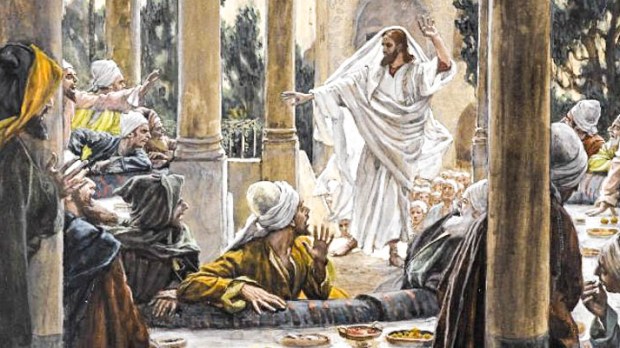Jesus spoke to the crowds and to his disciples, saying,“The scribes and the Phariseeshave taken their seat on the chair of Moses. Therefore, do and observe all things whatsoever they tell you,but do not follow their example. For they preach but they do not practice.” —Matthew 22:40
On October 31, Christians around the world observed the 500th anniversary of the beginning of the Protestant Reformation. Although Martin Luther’s original proposals and critiques were aimed at specific theological issues (especially the abuse of “buying and selling” indulgences), the movement that we now call the Reformation took on a life of its own and divided the Church.
In many ways, however, the Reformation wasn’t a unique event. In every age men and women—including great saints like Pope Gregory VII, Peter Damian, Francis of Assisi, and Catherine of Siena—have called the Church to a more faithful observance. They challenged, encouraged, and pleaded with popes, bishops, and abbots and abbesses in the hopes of helping the Church to be more faithful to its mission. Pope Francis alluded to this last year during his pastoral visit to Sweden when, at an ecumenical gathering in Lund on October 31, 2016, he reflected:
Jesus tells us that the Father is the “vinedresser” (cf. John 15:1) who tends and prunes the vine in order to make it bear more fruit (cf. v. 2). The Father is constantly concerned for our relationship with Jesus, to see if we are truly one with him (cf. v. 4). He watches over us, and his gaze of love inspires us to purify our past and to work in the present to bring about the future of unity that he so greatly desires.
Even after the Protestant Reformation and the division of Western Christianity, the Catholic Church committed itself to reform and renewal and new generations of saints and theologians—including St. Charles Borromeo whom we celebrate on November 4—helped guide the Church up to the present day.
In many ways, this Sunday’s Gospel is the story of another call for reform as Jesus casts a critical eye on many of the Scribes and Pharisees. Yes, he acknowledges, they were part of a great tradition of religious leaders and teachers going back to Moses (whom the Jews believed had been given a special mandate to teach by God on Mount Sinai), but their message lacked integrity because they didn’t practice what they were preaching. So, Jesus instructs, listen to their message—it is from God—but do not imitate their way of life.
This wasn’t a new issue at the time of Jesus, either. In fact, our liturgy this Sunday includes a reading from the Prophet Malachi who condemns the religious leaders of his day for their own failures: “You have turned aside from the way, and have caused many to falter by your instruction; you have made void the covenant of Levi, says the Lord of hosts” (2:8).
When we think of this text in relation to our Gospel this Sunday, it’s important to remember that nearly 500 years separated the Prophet Malachi and the Evangelist Matthew. Indeed, “there is nothing new under the sun” (Ecclesiastes 1:9).
In response to those who might be tempted to follow the teachings and example of the religious elite too closely, Jesus reminds his disciples that they shouldn’t spend their energy looking for a teacher or master or guru on whom they could build their lives. They were to have one Teacher: the Christ. And his lesson is very clear: “The greatest among you must be your servant. Whoever exalts himself will be humbled; but whoever humbles himself will be exalted” (Mt 23:12).
Although few of us could be said to hold positions of authority within the Church, the readings proclaimed this Sunday remind us of two points.
First, the People of God—the Church—is always in need of reform and renewal. At the same time, however, we can trust that the Spirit will call forth prophetic men and women to help guide us along our way.
Second, each of us is capable of the same sins that Jesus condemned when he pointed out the hypocrisy and the vainglory of the Pharisees and Scribes. The invitation presented to us this Sunday is to reflect on how we practice what we believe and teach in our daily lives and to be sure that our words and actions truly reflect the faith we profess.
Who are the prophetic voices who help you reflect on how well you are living your faith? How do these spiritual guides help you live out your commitment to follow Jesus in better ways?How do you work for healing and wholeness in the Church?Take time this week to pray for pastors, deacons, religious brothers and sisters, catechists, and lay ministers, asking God to help them be faithful to their ministry and prayer.
Words of Wisdom: “None of us live lives that are perfectly in accord with what we teach or profess; that will doubtless be the case until the end of time, and we cannot require that a priest or catechist be perfect … The lesson of today’s liturgy is that we must all honestly review our inner attitudes and not be too ready to believe the reproaches of Jesus are irrelevant to us moderns.”—Adrian Nocent, OSB, in The Liturgical Year

